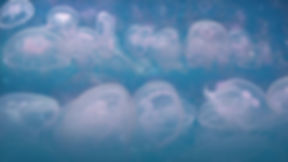Shark Lives Do Matter, Mr. Beaty

Last year I wrote a blog about the seal explosion in Cape Cod. As it was then, it is still happening and the controversy over the relatively new inhabitants rages on accept now the stakes are higher.
Apparently on August 23rd of this year, a shark was seen feeding on a seal just 75 feet off the shore of a popular beach which sent swimmers and surfers scrambling to shore. This in turn prompted Barnstable County commissioner, Ron Beaty, to propose a controversial “shark hazard mitigation strategy” which involves deploying baited drum lines with hooks near popular beaches in the hopes of catching great white sharks. Consequently, when the sharks are found hooked and still alive on the lines, they are shot and their bodies discarded out to sea.
Commissioner Beaty also cited, “This shark, that attack that got videotaped off Nauset, that was very close to shore and very easily could have been a small child and not a seal,” Beaty said. “It’s very easy for these sharks to mistake a person for a seal. They’re just looking for something to eat. God forbid it’s somebody’s child, and by that time, it’s too late. We can’t wait for that.”
Three problems are embedded in his statement. First off, there has never been a death from shark incident in Cape Cod. Second, the technique Mr. Beaty referenced has not proven to be effective when tried in other areas of the world such as Australia and Hawaii. Finally and most important, the great white shark is still a protected species.
The real problem, aside from Mr. Beaty’s lack of understanding the issue here is why kill sharks when they are not doing anything but feeding on their natural prey?
Bottom line, Mr. Beaty needs to do his homework.
Sharkbytes has three recorded shark incidents in Cape Cod. One in 2017, the others 2016 and 1996: none were fatal. According to the Global Shark Attack File, there have been seven incidents in Massachusetts since 1830, three of which were fatal all recorded before 1936.
This minuscule number isn’t left to chance. The fact is the chances of getting bit by are shark are remarkably low. According to the Wildlife Museum, the odds of getting bitten and killed by a shark are 1 in 3,748,067. In a lifetime, you are more likely to die from fireworks (1 in 340,733), lightening (1 in 79,746), drowning (1 in 1,134), a car accident (1 in 84), stroke (1 in 24), or heart disease (1 in 5). If sharks mistakenly eat people thinking they are seals, then why are there not more incidences of death among our beaches? In reality the ‘somebody’s child’ Mr. Beaty speaks of has more of a chance of dying in a car accident on the way to the beach than getting devoured by a shark. Should culling sharks be an answer for the ‘what ifs’?
The truth is what Mr. Beaty needs to learn is there are many other forms of shark deterrent that could work as a win/win for sharks and the precious beaches of Cape Cod. Sharkbytes has done several blog posts on them ranging from alternative electronic ‘nets’ to technology equipped on surf boards or wetsuits that are not critical to the shark’s well-being as the ‘shark hazard mitigation startegy’ Mr. Beaty proposes is.
Bottom line, Mr. Beaty needs to take an educated approach to solving the problem of one seal getting devoured in the way nature intended rather than spouting off about killing sharks that are important to our world balance.




















